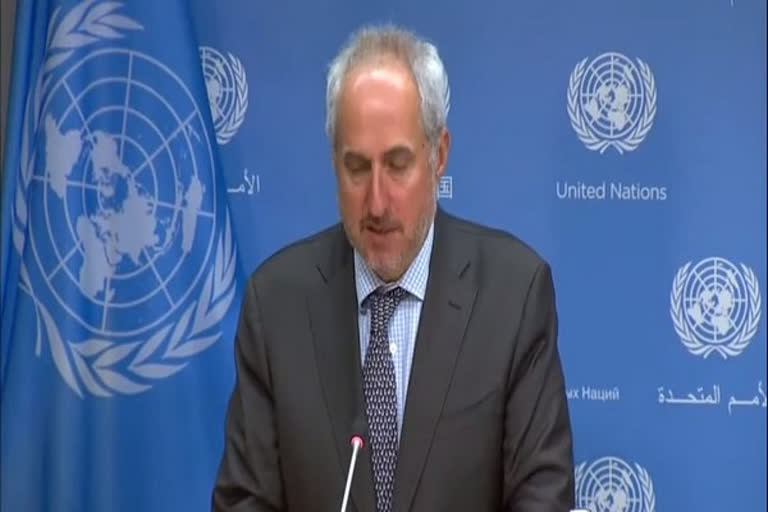New Delhi: UN Secretary-General Antonio Guterres remains very concerned about any potential escalation between India and Pakistan over Kashmir and appeals to both sides to deal with the issue through dialogue, said Stephane Dujarric, spokesperson of Guterres, on Wednesday.
Dujarric, who was addressing media persons at the United Nations, said: "The Secretary-General has had contacts both with the governments of India and Pakistan. He saw the Prime Minister of India at the sidelines of the G7. He had spoken to the Foreign Minister of Pakistan."
"On Monday, Guterres also met with the Permanent Representative of Pakistan to the UN Maleeha Lodhi on her request over the Kashmir issue and his message to all of them has been the same, both publicly and privately, that he remains very concerned about any potential escalation between India and Pakistan over the situation," he said.
Dujarric was responding to a question whether the UN Secretary-General has any plan to mediate between India and Pakistan on Kashmir issue on the sidelines of the United Nations General Assembly (UNGA) as the session will be attended by the prime ministers of both countries.
His comments came after India and Pakistan clashed at the 42nd session of the United Nations Human Rights Council (UNHRC) in Geneva over the Kashmir issue.
Responding to Pakistan Foreign Minister Shah Mehmood Qureshi's claims of human rights violations and possible "genocide" in Jammu and Kashmir in future, Vimarsh Aryan, First Secretary in India's Permanent Mission to the UN Human Rights Council in Geneva, said that it was "an ill-disguised effort to advance its territorial ambitions."
"It defies credibility that Pakistan, which is the epicentre of global terrorism is claiming to speak on behalf of unnamed countries on the issue of human rights. It forgets that terrorism is the worst form of human rights abuse," he said.
He said the Article 370 was a temporary provision of the Indian Constitution and the recent modification was "within our sovereign right and entirely an internal matter of India."
The decision, he said, removes "impediments to the enjoyment of civil, political, social, economic and cultural rights of our citizens in Jammu and Kashmir and Ladakh," especially those dealing with women, children and disadvantaged sections of our society in that region.
Qureshi had claimed earlier in the day that India has transformed Jammu and Kashmir into a largest "caged prison on this planet" after the abrogation of Article 370 and that the human rights were being "trampled with impunity" there.
Earlier in its country statement, India had rejected Qureshi's allegations and hit back saying a "fabricated narrative" on Jammu and Kashmir has come from "the epicentre of global terrorism" and from a nation, which conducts cross-border terrorism as a form of 'alternate diplomacy.
Also read: PM trying to divert attention from real issues: Owaisi



